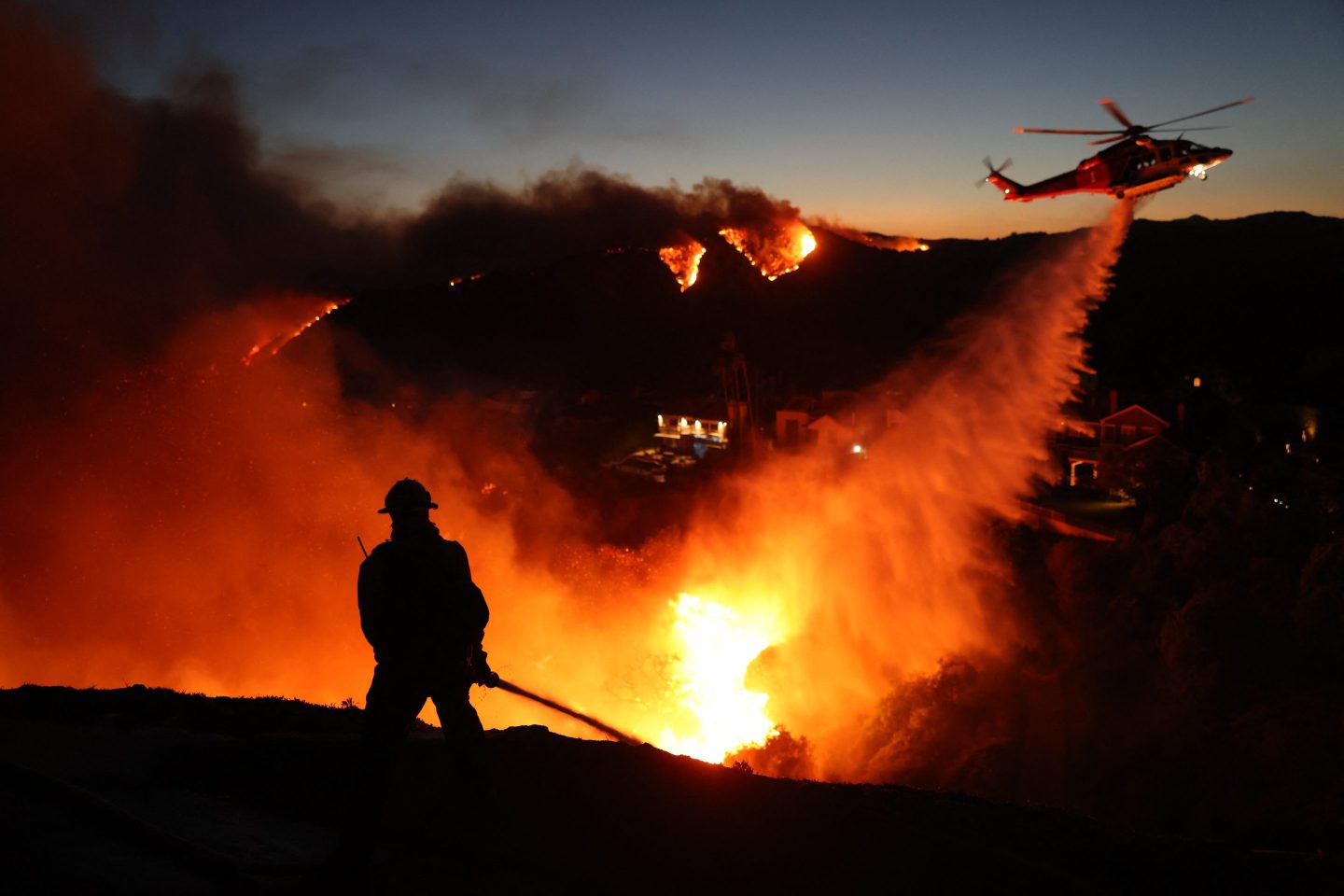Good morning!
California wildfires are causing massive destruction in the Los Angeles area this week, as several different fires scorch the city. With high winds at one point reaching 100 miles per hour, more than 100,000 acres have burned, thousands of structures have been damaged or destroyed, multiple people have been killed, and nearly 180,000 residents have been told to evacuate.
The disaster has left many people in the area either temporarily displaced or without a home entirely, and many victims who lost homes may find themselves in financial distress after large insurance companies recently dropped coverage for homes.
Fortune reporter Sara Braun spoke with HR leaders about the best ways that employers can support workers affected by the fires. While specific advice varied, it all boiled down to one idea: Treat your employees like family. Under the Occupational Safety and Health Administration (OSHA) companies are required to protect workers from the hazards associated with wildfires, but there are many other ways organizations can go above and beyond to ensure the safety of their employees.
Setting up clear lines of communication, allowing worker flexibility, and helping affected employees access life-saving benefits are some of the basic actions that leaders can take right now, experts say. People will likely be overwhelmed with both the physical and emotional toll of these losses, so it’s especially important that bosses and people managers step in to explain what their benefits are, and how they can access them.
“This is not the time to start thinking about, ‘Well, this is the requirement by law, therefore, I should do the minimum required.’ No, that’s the wrong answer,” says John Staines, managing partner of the global human resources practice at DHR Global. “The right answer is: What would you do for yourself and your family? And treat everybody else the same way.”
As the shock and devastation continues to affect thousands of workers, it’s also especially important for leaders to show their empathetic side, Emily Rose McRae, senior director analyst in the Gartner HR practice, tells Fortune.
“This is a wonderful time for being understanding and not saying after this week: ‘Okay, can we get back to normal now.’”
Read more about how HR leaders can assist employees during the California wildfires here.
Sara Braun
sara.braun@fortune.com
Brit Morse
brit.morse@fortune.com
Around the Table
A round-up of the most important HR headlines.
The longshoreman’s union reached a tentative deal that averts a port strike that would have shut down major East and Gulf Coast ports next week. Washington Post
Global banks plan to cut as many as 200,000 jobs in the next three to five years as artificial intelligence takes on more tasks traditionally carried out by humans. Bloomberg
The Park City Professional Ski Patrollers Association ratified a contract with Vail Resorts, raising the starting pay of mountain safety workers $2 an hour, and ending a strike that hindered resorts during their busiest time. New York Times
Watercooler
Everything you need to know from Fortune
“Career catfishing.” Fed up with being ghosted, Gen-Z applicants are no longer replying to messages from hiring managers and sometimes won’t even turn up on the first day of work. —Chloe Berger
Complete disaster. The deadly inferno sweeping across Los Angeles, consuming thousands of homes, and costing over $50 billion in damages, will likely be one of the most expensive natural disasters on record. —Christiaan Hetzner
Unequal mandates. Amazon’s widely discussed RTO policy may end up being more strict in the U.S. than in Europe as employees overseas may see more flexible work schedules. —Prarthana Prakash













